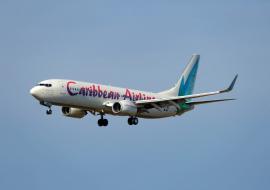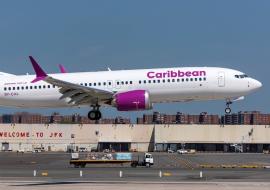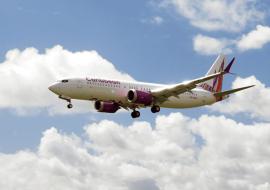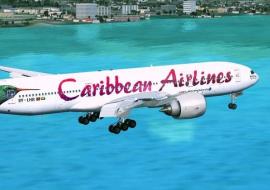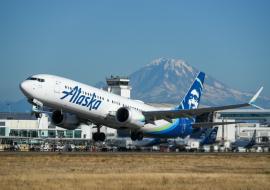Iberia’s Total Capacity Skidded by 5.7 Percent in December
In December, Iberia continued its capacity adjustments to respond to the weak demand, affected by the adverse economic situation. Total capacity –measured in available seat kilometers (ASK)- decreased by 5.7 percent and traffic dropped by 7.0 percent. Load factor stood at 76.0 percent, 1.1 points down on last year.
Long haul capacity went down 1.4 percent while RPK reduced by 3.7 percent, leading to a load factor of 81.5 percent (-2.0 points). In the South Atlantic, capacity and traffic decreased by 0.8 percent and by 0.9 percent respectively, standing the load factor at 83.5 percent.
In the Mid Atlantic, the number of ASK dropped 1.9 percent and the load factor reached 81.0 percent. In North Atlantic capacity and traffic went down 1.7 percent and 3.2 percent respectively, which led to a load factor of 78.6 percent.
In Europe the load factor improved by 2.9 points to 66.2 percent. Capacity went down 7.4 percent and traffic 3.2 percent. In Africa and Middle East traffic rose 3.5 percent, while the load factor decreased by -3.5 points.
The company continued to reinforce the connections in its main hub, where the international medium haul traffic increased by 3.7 percent respect to the previous year, improving the load factor by 1.9 points, to 67.0 percent.
In the domestic sector, Iberia cut capacity by 21.9 percent, following the strategy of revising and streamlining the network. The load factor stood at 68.6 percent (-5,1 points).
Despite this decrease and the 7.2 percent growth in the average stage length, the unit revenue was higher compared to the previous year thanks to the meaningful improvement in yields.
In the accumulated of 2008, the company adjusted its capacity by 0.5 percent and traffic went down 2.5 percent, leading to a load facto of 80.0 percent, decreasing 1,6 points respect to the historic record reached in 2007.







